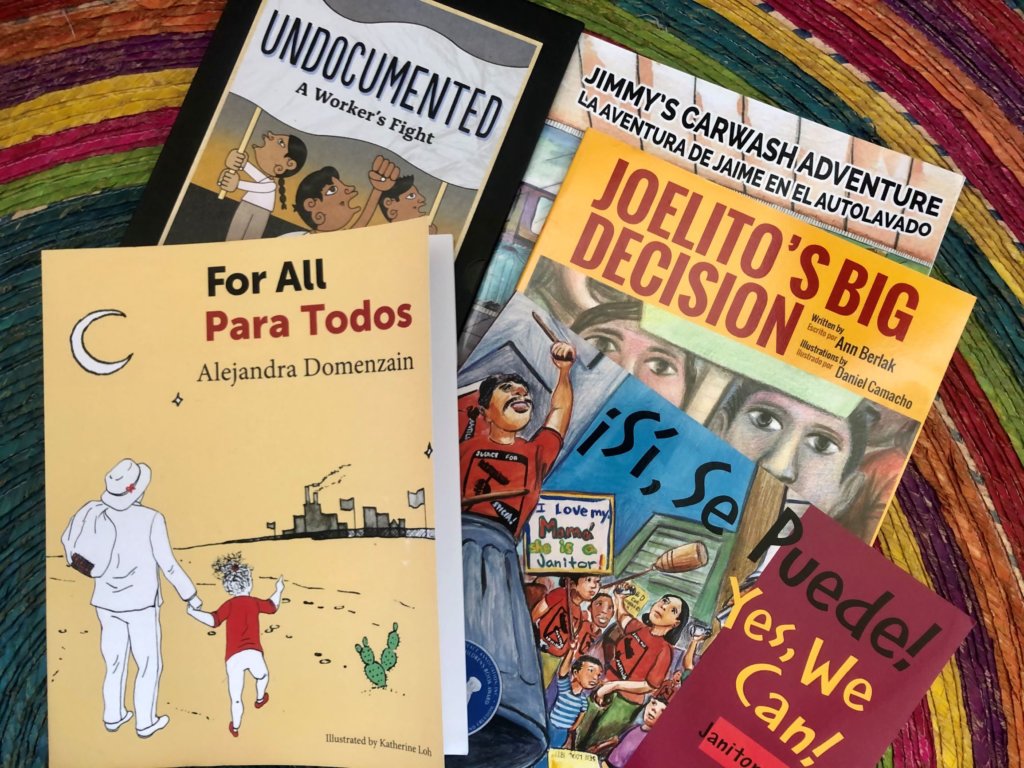This Week in Immigration Reform — Week Ending April 8

Week Ending April 8
This week in immigration: NCLR responds to Donald Trump’s latest proposal; newspapers across the country feature stories of U.S. citizens whose families will be paying close attention to the arguments at the Supreme Court this month; and the Supreme Court upholds principle of one person, one vote.
Keep up with the latest from UnidosUS
Sign up for the weekly UnidosUS Action Network newsletter delivered every Thursday.
.@realDonaldTrump’s plan to pay for a wall defies both reality and American values. https://t.co/E6KHLR5LaU
— Janet Murguía (@JMurguia_NCLR) April 6, 2016
NCLR responds to Trump proposal: This week, the Washington Post reported that Donald Trump shared a two-page memo describing how he would force Mexico to pay for a wall along the border by blocking remittances to Mexico. In a separate column, the paper describes the many problems with this idea. NCLR President and CEO, Janet Murguía, dismissed the proposal as ludicrous and noted her disappointment in the presidential candidate’s continued attempts to dehumanize and attack Mexican immigrants. “Donald Trump’s proposal is a half-baked measure that no one who knows anything about immigration, foreign policy or economics would take seriously,” said Murguía. “The money that Trump purports to use as a threat doesn’t belong to the Mexican government or to the United States. It belongs to Mexican immigrants who work and pay taxes. Much like his other proposals on immigration, this notion is just another instance of anti-Latino and anti-immigrant sentiment masquerading as policy.”
News stories feature families anxiously awaiting ruling on administrative relief: Opinion pieces published in different parts of the country this week describe the stories of families made up of U.S. citizens and undocumented immigrants who are potentially eligible for administrative relief. The Tennessean features Camila, the integration director at NCLR Affiliate, TIRRC. Camila is part of a mixes status family- she recently became a U.S. citizen and her parents are undocumented. The Arkansas Democrat-Gazette profiles Norma, a woman who came to the U.S. 18 years ago and could benefit from DAPA if the Supreme Court rules favorably later this year. Norma is the mother of a U.S. citizen child and she has worked and paid taxes in the U.S. The Austin-American Statesman printed a piece by Areli Zarate, a teacher who has been granted DACA and whose mother is potentially eligible for DAPA because she is the mother of a 14-year-old who is a U.S. citizen. Areli describes the hopes of her family and that of her students whose families could also be impacted by the Supreme Court decision.
‘One person, One vote’ principle unanimously upheld by Supreme Court: The Supreme Court decided in Evenwell v. Abbot to uphold that total population should be used when drawing district lines. The plaintiffs in the suit sought to instead use registered voters to determine districts, a move which would have excluded Lawful Permanent Residents, undocumented immigrants, and youth under the age of 18. Justice Ruth Bader Ginsburg’s opinion, while not explicitly making total population the only Constitutionally acceptable apportionment method, expressed serious doubt that any other metric could adequately replace it in the future.



